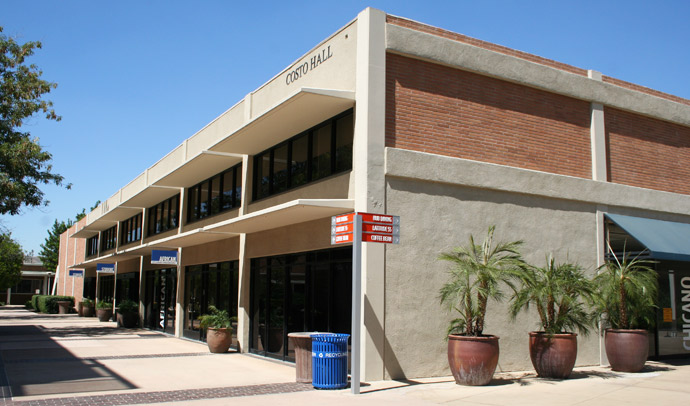In a post-9/11 world, stereotypes of the Middle East have arisen and fogged the true culture and livelihood of its countries. The Middle East has been characterized, by some, under a single stigma of extremists who reside in a large desert. Thanks to the media and individuals’ lack of research beyond what is said through the news, these stereotypes have created a skewed view of these countries. People of Middle Eastern descent have been labelled with the generalizations that have yet to be clarified because of misinformation. Due to the Palestinian and Israeli conflict and the terror in Syria, to name just two conflagrations, some Middle Eastern countries have been recognized only for hostilities.
In midst of these events, UC Riverside has established a Middle Eastern Student Center (MESC), providing students of Middle Eastern descent and organizations resources while also being a source for non-Middle Eastern students to clarify generalizations and underlying stigmas held toward Middle Eastern cultures.
The Middle Eastern Student Center holds an intriguing aura because it raises the question: How will students handle such conflicts with one another while using this particular center? However, the MESC should not only be looked upon as a platform for discussion on these hostilities, although it very well could be, but rather a resource to educate all students on campus.
The primary purpose of the center is to represent Middle Eastern countries by allowing organizations the support and help needed to carry out events that will display the values of their countries. Shadi Matar, current ASUCR CHASS Senator and co-founder of the MESC, described the initial struggle during the three years of creating the Middle Eastern Student Center.
The first meetings were led by the administration rather than the students. Unfortunately, this led to misinformed sessions and people regarding the center as either Pro-Palestinian or Pro-Israeli, which had nothing to do with the purpose of the center. This misunderstanding revealed the misinformation that students and faculty initially had about the center, simultaneously giving a good indication of what needed to be clarified in society in general. The fear of creating a center representing Middle Eastern culture drew up the conflicts that pertained to the Middle East. However, the disputes of the Middle East are not what the center is representing but each country’s individual values. The Middle East has been seen for its disputes but not for its cultures.
The struggle in establishing the MESC is ironic because it reveals the depiction of the Middle East as violent by the media, covering up its accumulation of identities. Therefore, the need for a Middle Eastern Student Center at one of the most diverse campuses is needed more than ever. However, when students took the initiative to create the center, it allowed the process to more clearly state what the Middle Eastern Student Center was intended to represent and what the students themselves wanted from the center.
Matar provided a story that revealed some of the naivete regarding the Middle East during his initial visit to UCR. As a first-year, Matar took a tour on campus and learned of the centers that were provided to students who identify as different nationalities but learned there was no resource for him as a student of Middle Eastern descent. When Matar, a self-described Christian Palestinian, asked if there was the same type of center for him, the UCR campus tour guide directed him to the Muslim Student Association.
In this situation, two people need help: The student needs resources and the tour guide needs a little enlightenment on the difference of religion and culture. The center is set to provide benefits to everyone on campus and allows students to gain a better understanding of each country’s culture, rather than identifying them as one single way of life. With the center as a resource to each club that identifies as Middle Eastern, it can help them deal with the bureaucracy so that organizations can focus on setting up events. This will enable organizations to further enhance the cultural and educational experience of UCR.
The Middle Eastern Student Center is an asset to UCR because it not only promotes diversity but helps students understand the cultures and people of the Middle East. Diversity is not just about a mix of ethnicities but rather an understanding and awareness of the other cultures within our own population. The center dismisses stereotypes and provides insight on the students and faculty who identify as Middle Eastern.
The center essentially helps to promote a deeper comprehension of values that have been distorted and labelled through the media and through misinformation. According to Matar, the center is the first of its kind in the state of California and perhaps in the United States. By establishing the first Middle Eastern Center in California, UCR has made a stride to create an even more inclusive campus. UCR prides itself in being diverse and with this center it will provide support, education and inclusiveness to the campus, allowing for all students at UCR a comprehensive understanding of the cultures around them.









